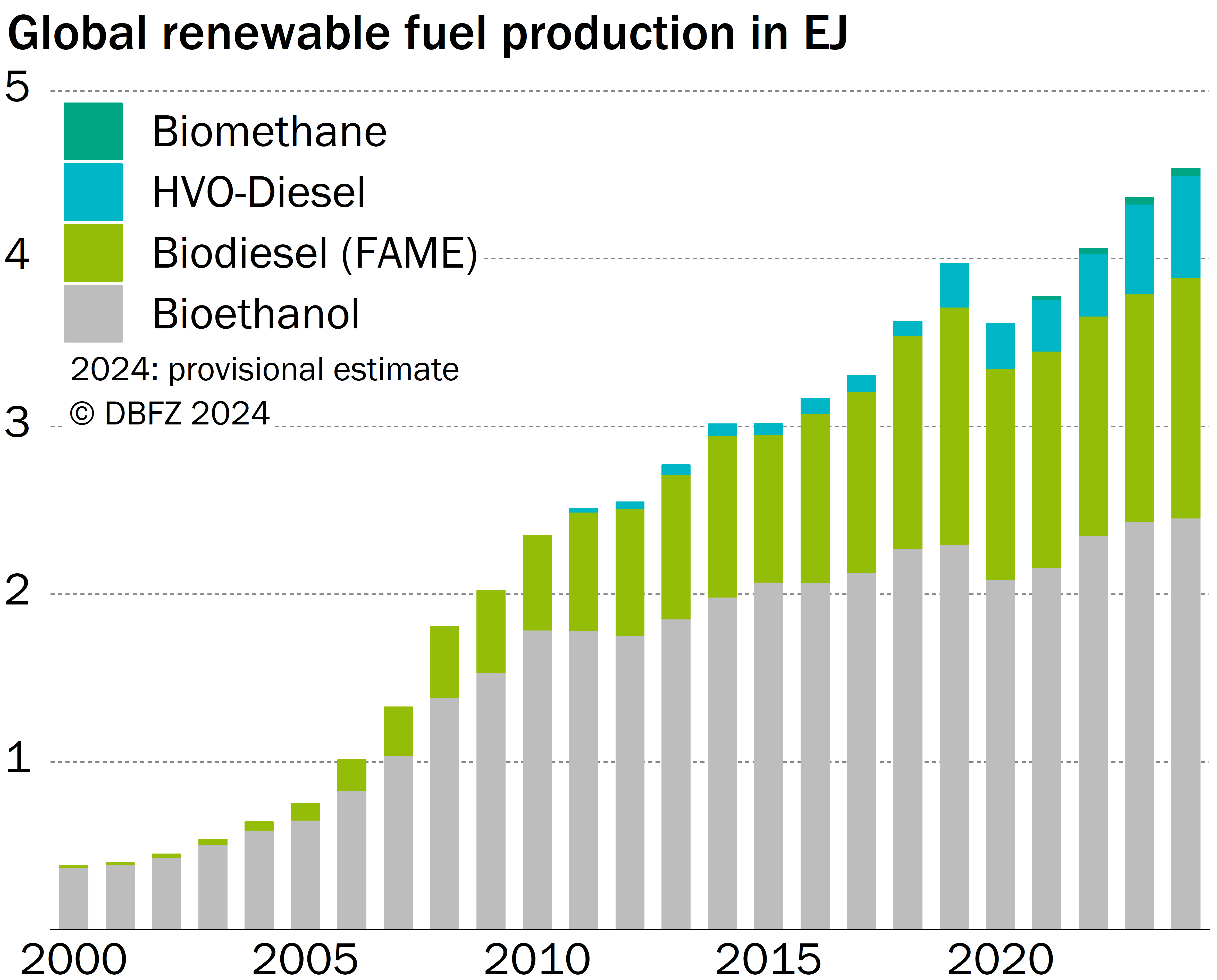DBFZ publishes comprehensive monitoring of renewable energies in transport
The European Union and large parts of the world are pursuing the ambitious goal of achieving climate neutrality by 2050 at the latest. With an average of 20 % of annual greenhouse gas emissions, the transport sector has a key role to play. The DBFZ, in cooperation with the Technology and Support Centre (TFZ), the Technical University of Hamburg (TUHH), the Paul Scherrer Institute (PSI) and the Fraunhofer Centre for Chemical-Biotechnological Processes (CBP), has compiled a comprehensive monitoring report on the topic of ‘Renewable energies in transport’. The study, which has now been published and is freely available, describes the current status of the energy transition in the transport sector in Germany, Europe and worldwide.
Global greenhouse gas emissions from transport have increased by more than 65 % since 1990. At the same time, a further massive increase in global transport performance is expected by 2050. As far as Germany is concerned, the urgently needed turnaround in the transport sector is slowing down, and the German climate targets for the transport sector are unlikely to be met in the coming years. As a result, the challenges for climate-neutral transport continue to grow.
The monitoring report 'Renewable energies in transport', published by the DBFZ, describes the current status of the energy transition in transport in Germany, Europe and worldwide. The report begins with an outlook on the energy transition in transport with the perspective of climate-neutral transport, comparing the future demand for renewable energy with the potential supply. The following sections of the report present the legal framework and main policy objectives for renewable energy, the main steps in the supply and use chain of renewable energy, followed by an environmental and economic classification.
Avoiding transport and shifting to more climate-friendly options, as well as switching to renewable fuels and alternative powertrain systems required
The electrification of vehicle powertrains is a key component of the transformation of transport. In 2024, the share of electric cars in Germany will be around 3 %. A gradual increase in this share at the current rate will not be sufficient to achieve the target of 15 million electric vehicles on the road by 2030 and the climate goals beyond that. In the authors' view, a stronger and much faster electrification of new vehicles in all areas where this is possible is essential. This objective must also be clearly reflected in the regulatory framework. For example, the currently discussed softening of the phase-out of internal combustion engines in 2035 in the context of the European CO2 fleet regulation is a false incentive for society and industry. At the same time, the use of renewable fuels is indispensable, especially in aviation, shipping and, in some cases, heavy-duty transport, which are difficult to electrify, as well as for existing vehicles with internal combustion engines. The amount of renewable fuels produced worldwide today (about 4.8 exajoules in 2024) cannot come close to meeting this demand. In the future, at least 10 times this capacity will be needed. To achieve this, new electricity and biomass-based technologies need to be brought to market, and knowledge of the potential of suitable resources and their sustainable mobilisation needs to be expanded, say the authors of the study.
The full monitoring report and an online version with a download area are available free of charge at the following links:
www.dbfz.de/monitoring-verkehr (PDF) - German language
www.dbfz.de/monitoring-ee-im-verkehr (online) - German/English
Smart Bioenergy – innovations for a sustainable future
The DBFZ works as a central and independent thinker in the field of energy and material use of biomass on the question of how the limited available biomass resources can contribute to the existing and future energy system with sustainability and high efficiency. As part of the research the DBFZ identifies, develops, accompanies, evaluates and demonstrates the most promising fields of application for bioenergy and the especially positively outstanding examples together with partners from research, industry and public. With the scientific work of the DBFZ, the knowledge of the possibilities and limitations of energy and integrated material use of renewable raw materials in a biobased economy as a whole should be expanded and the outstanding position of the industrial location Germany in this sector permanently secured – www.dbfz.de/en.


